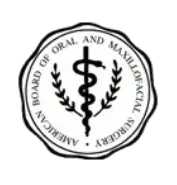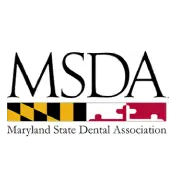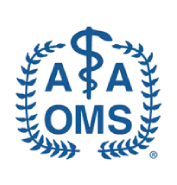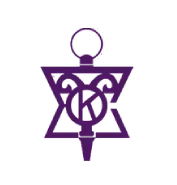TMJ and Jaw Pain – Why Does My Jaw Hurt?
By: 123 Dentist
Trauma, dental problems, and other health conditions can cause jaw pain. Pain in the jaw can range from uncomfortable to extreme, but you don't need to suffer in silence. Once a health professional diagnoses the source of your jaw pain, you can receive treatment to alleviate or eliminate your pain.
Structure of Your Jaw
The temporomandibular joints (TMJ) on either side of your mouth connect each side of your lower jaw, or mandible, to your skull. These joints are flexible and can easily move, slide, and rotate in various directions as you speak, eat, drink, yawn, brush and floss your teeth, and perform other motions with your mouth. However, if your TMJ is hurt or overused, they can click or pop rather than move freely, which can cause you pain and discomfort.
Any problem or pain associated with TMJ is labeled as temporomandibular joint disorder (TMD), sometimes called temporomandibular joint and muscle disorder (TMJD). This common problem affects between 5 and 12% of people, according to the National Institute of Dental and Craniofacial Research.
Common Causes of TMD
Several lifestyle factors and events can trigger TMD such as the following:
- Mouth or jaw injuries or trauma: Injuries and trauma can damage or move your TMJ out of place, impacting their ability to move freely.
- Teeth clenching or grinding: People who clench or grind their teeth put pressure on their TMJ, which causes jaw pain. Clenching and grinding often occur while you’re sleeping, and you may be unaware of this habit.
- Opening your mouth too wide: Opening your mouth too wide when you eat or talk can put a strain on your TMJ and cause TMD.
- Rheumatic diseases: Arthritis and other rheumatic diseases impact and cause pain in various joints, including your TMJ.
- Tension headaches: Most commonly caused by stress, these headaches can cause pain throughout the face and jaw.
- Sinus infections: The maxillary sinuses sit above the top row of teeth. When they become infected, they can cause swelling and pain around the eyes, cheek, and upper jaw. Many sufferers report feeling a tight, constant pressure in their upper jaw during sinus infections.
- Neuropathic pain: This type of pain occurs after nerve damage. The damaged nerves send pain signals to the brain. If the damaged nerves are near the jaw, the condition manifests itself as jaw pain. People can experience jaw pain from neuropathic pain constantly or now and again.
- Synovitis or capsulitis: These conditions cause inflammation in joints, such as the TMJ, or connecting ligaments. Inflammation around the jaw can be painful.
- Ill-fitting dentures: When dentures don’t fit correctly, they can force your mouth into an unnatural position that can trigger and aggravate TMD.
Other Symptoms of TMD
Jaw pain is one of the most obvious and troublesome signs of TMD, but sufferers usually experience a range of symptoms:
- Headaches or migraines.
- Restricted TMJ movement.
- Frequent jaw locking.
- Difficulty chewing food.
- Stiffness in the TMJ.
If you experience these symptoms, especially when coupled with jaw pain, you should make a dental appointment.
Other Causes of Jaw Pain
TMD is the most common cause of jaw pain, but it’s not the only trigger. Abscesses, tumors, infections of the gums, and other dental problems can also make your jaws hurt. Dentists can diagnose these problems. They can then put a treatment plan in place or refer you to another medical professional who can provide more specialized care.
Jaw Pain Treatment Options
The cause of your jaw pain will determine the best course of treatment. Your dentist will thoroughly examine your mouth and jaw to develop your treatment plan. Blood tests, X-rays, MRI tests, and psychological tests may also be undertaken to diagnose your condition and optimal treatment solution.
Treatment can be as simple as taking antibiotics to resolve infection or adopting a soft diet to relieve pressure on the jaw until the issue resolves itself. Some patients may need to wear a mouth guard to discourage bad behaviors and correct a misaligned bite. Steroid injections and pain medications can relieve swelling and inflammation around the joints. Physical therapy can also help some patients. Surgery may also be necessary to remove tumors, damaged bones, or infected teeth, or to treat impacted nerves.
Preventing Jaw Pain
Once your jaw pain is resolved, preventive measures can minimize the chance of it recurring in the future:
- Choose soft foods, such as pasta and soups, over hard, crunchy ones.
- Take small bites of food when you eat.
- Adopt relaxing habits such as meditating, practicing yoga, and getting regular massages.
- Sleep on your side or back, rather than your stomach.
- See your dentist regularly for oral checkups.
Oral and maxillofacial surgeons are the only specialists with a wide enough surgical knowledge of the temporomandibular joint (TMJ), and since TMJ problems can lead to more serious conditions, early detection is critical.
We can help you have a healthier and more comfortable jaw, visit us at http://oralsurgerydc.com
Source: www.123dentist.com/tmj-and-jaw-pain-why-does-my-jaw-hurt






5 Stars
based on 48 reviews
5 Stars
based on 15 reviews
5 Stars
based on 11 ratings